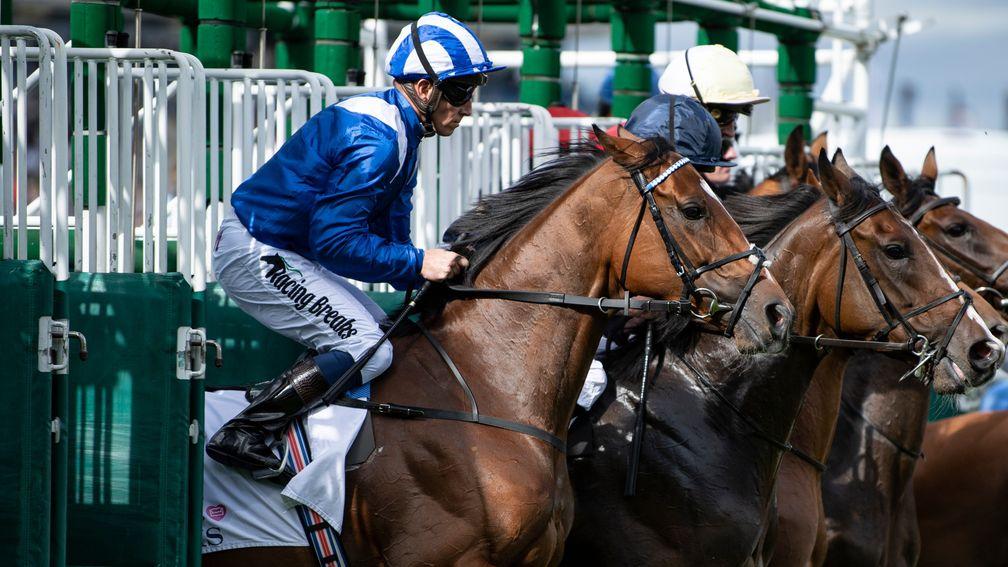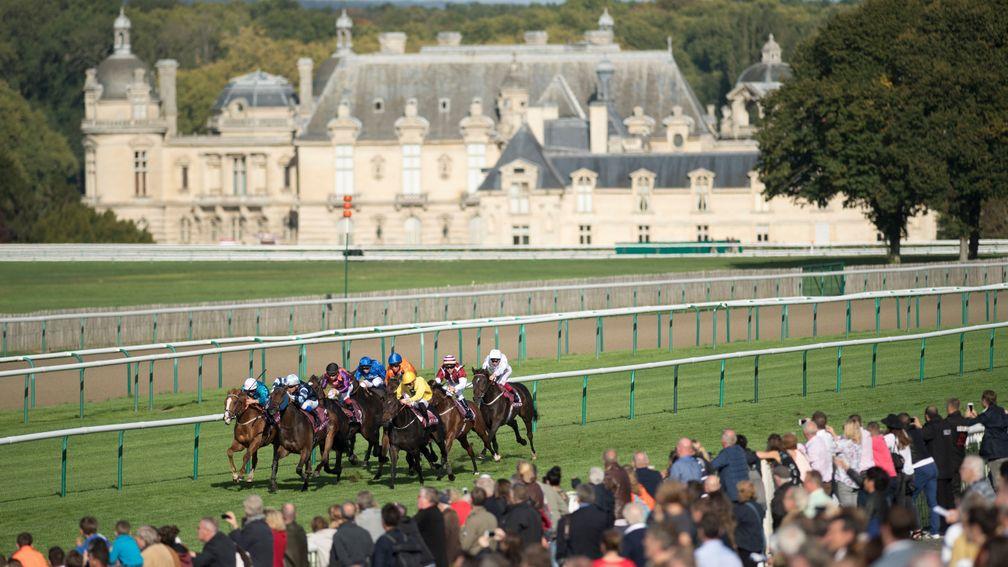How do you get a horse to win? Scientists think they have discovered the answer

Forget pre-race tactical talks, walking the track and analysis of rivals – mathematicians in France believe they have pinpointed the best way for a horse to be ridden in a race.
Analysis of speed data of horses running at Chantilly, provided to researchers by France Galop, determined the key to success is a fast start, allowing horses to reach their maximum oxygen consumption rate (VO2 max) as quickly as possible.
The study, published in peer-reviewed scientific journal Plos One, outlined how jockeys often started slower than ideally, believing that if their horse went too fast at the start it would be adversely affected at the end.

Studying races run over 1,300 metres (6½f) for two-year-olds, 1,900m (1m1½f) for three-year-olds and 2,100m (1m2½f) for four-year-olds, scientists concluded the horse who reaches and maintains its VO2 max for longest has the best chance of winning, with its deceleration at the end slower compared to its competitors.
It says: "A strong acceleration at the beginning of the race allows to reach the maximal value of VO2 quickly and is the best strategy.
"Jockeys often start slower than the optimal strategy, being afraid that if the horse accelerates too strongly with respect to its capacity at the beginning of the race, then the drop in velocity at the end of the race will be bigger."
More in Racing Explained:
How much does a trainer really earn?
How fit do you have to be to be a jockey?
So, how much does a jockey really earn?
Researchers Quentin Mercier and Amandine Aftalion, mathematicians at the School for Advanced Studies in the Social Sciences in Paris, acknowledged horses who had a tendency to slow down rapidly at the end of races might require tactics tailored to allow them to finish better, rather than also being asked to start quickly.
They said: "Horses that have a tendency to slow down too much at the end of the race should put less force at the beginning and slow down slightly through the whole race in order to have the ability to maintain velocity at the end."
The mathematicians concluded that individual horse information, such as its unique aerobic capacity, could be used as part of the model by trainers to create specific tactics to employ in a race to give the horse the best chance of winning.
Get a jump on the weekend's action:
One trainer, one jockey, one horse and one race to watch on Saturday
Min, Samcro, Allaho and Chris's Dream set to clash in John Durkan epic on Sunday
What A Shout: 'The softer the ground the better his chance!' | John Hales
Did you know you can bet with your online bookmaker without leaving the Racing Post app? Simply sign in to your existing bookmaker account via the accounts button and tap the odds buttons on a racecard to place bets
Published on 4 December 2020inNews
Last updated 17:24, 4 December 2020
- 'It's a dream come true' - 18-year-old to follow in Khadijah Mellah's footsteps with ride in the Magnolia Cup
- Merci Olivier! No final winner for Olivier Peslier but the world of racing unites in saluting the end of a great career
- The latest edition of the Racing Post is available to read online now - here's how you can access it
- How Smart View recorded a 76 per cent profit at the Cheltenham Festival
- Smart View is available on the Racing Post app - how to read the revolutionary new racecard
- 'It's a dream come true' - 18-year-old to follow in Khadijah Mellah's footsteps with ride in the Magnolia Cup
- Merci Olivier! No final winner for Olivier Peslier but the world of racing unites in saluting the end of a great career
- The latest edition of the Racing Post is available to read online now - here's how you can access it
- How Smart View recorded a 76 per cent profit at the Cheltenham Festival
- Smart View is available on the Racing Post app - how to read the revolutionary new racecard